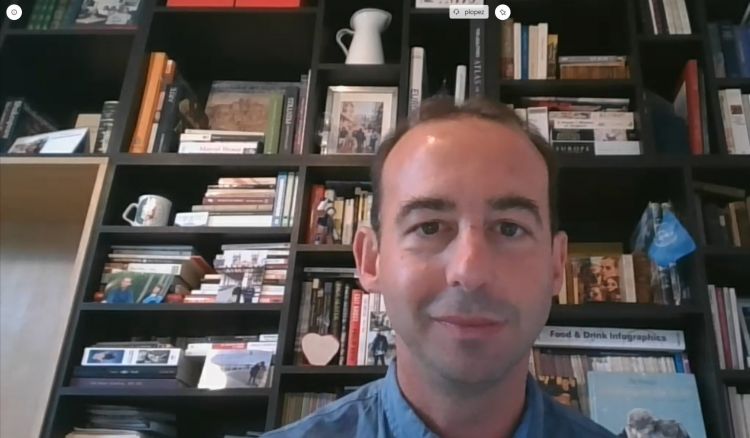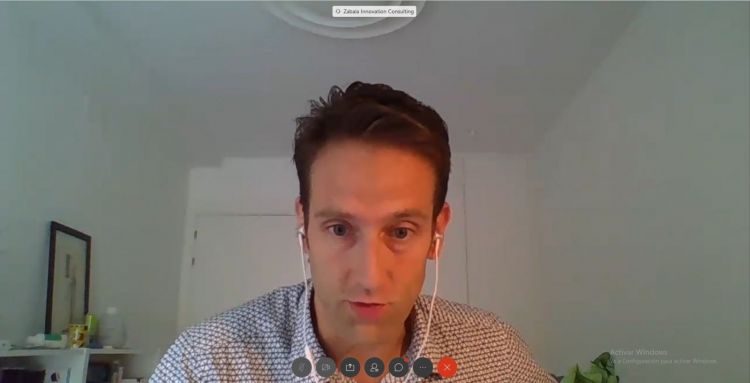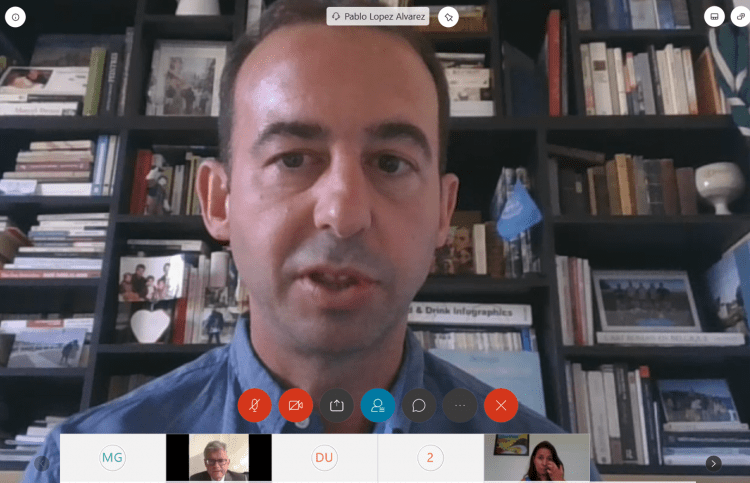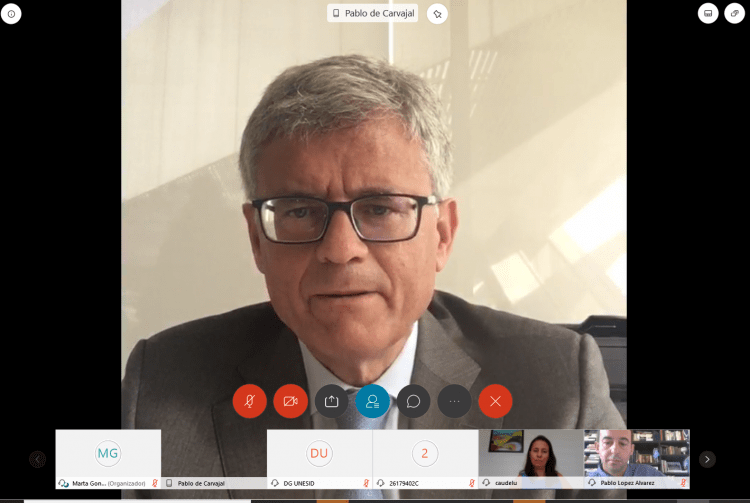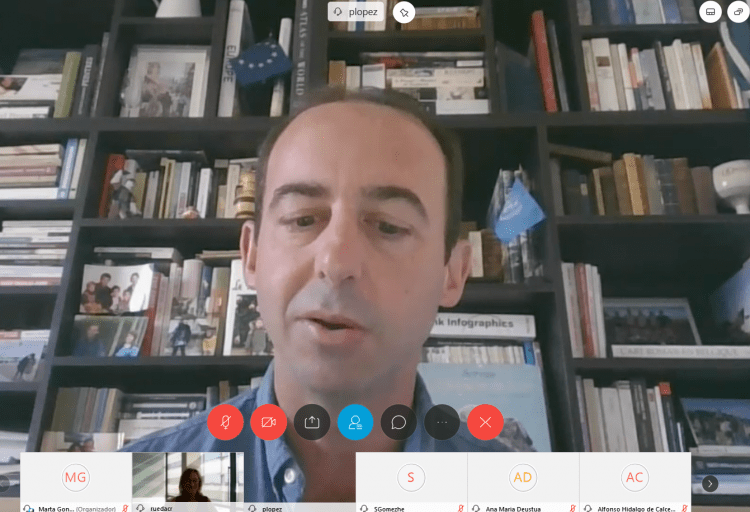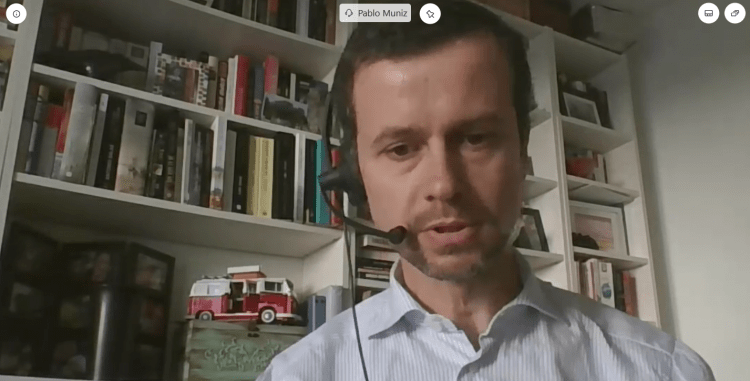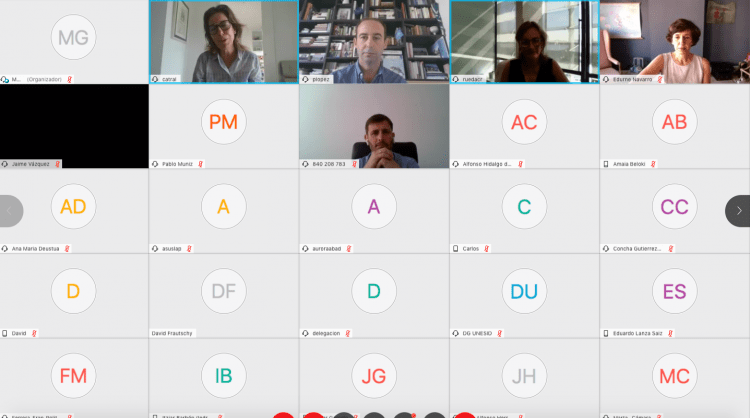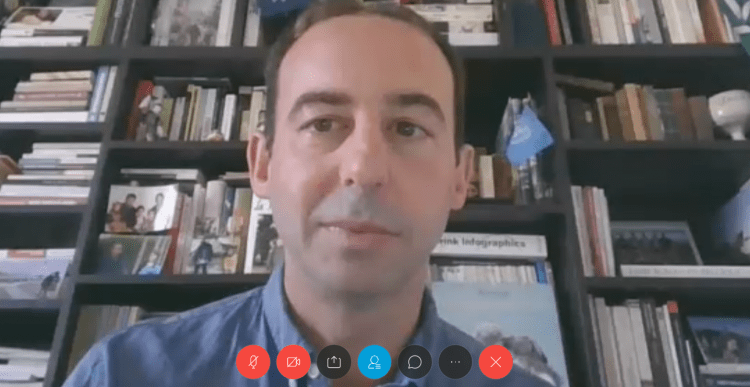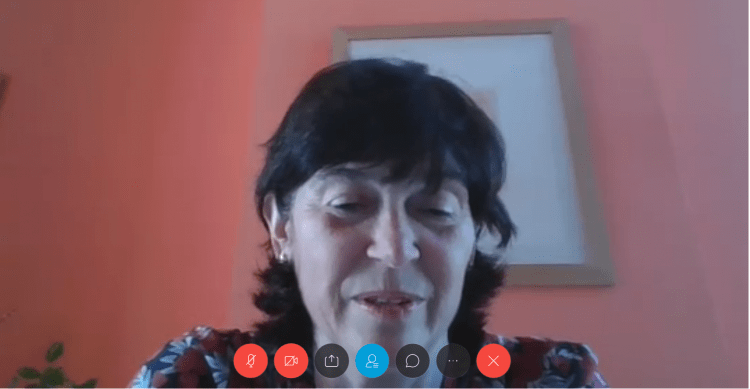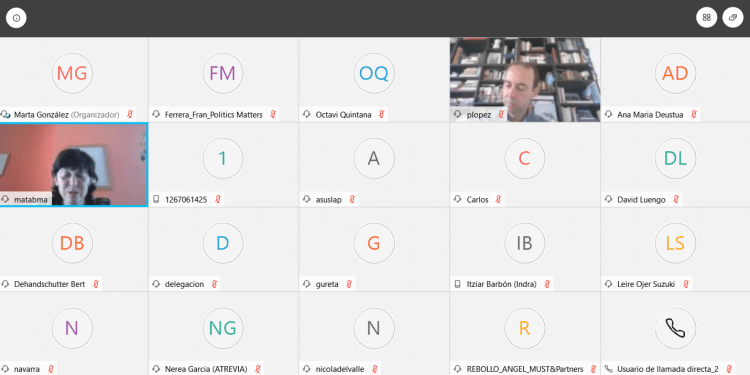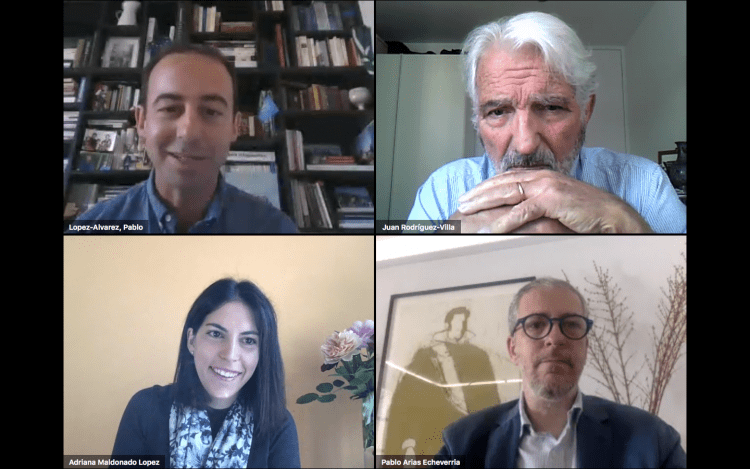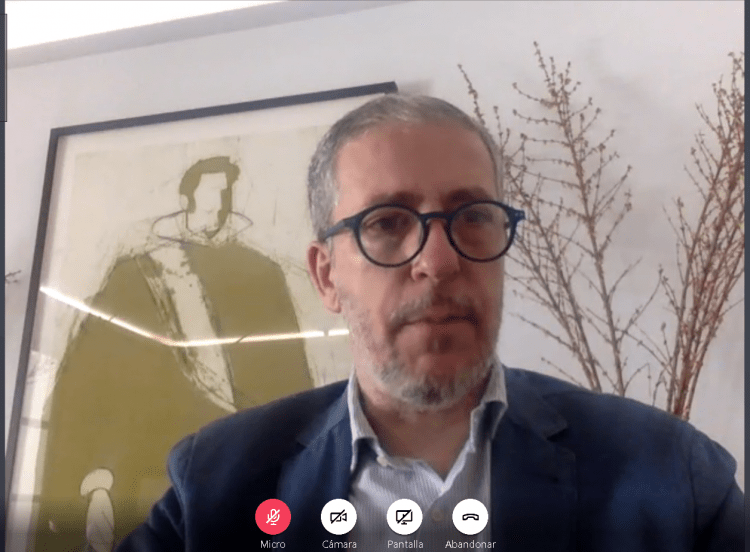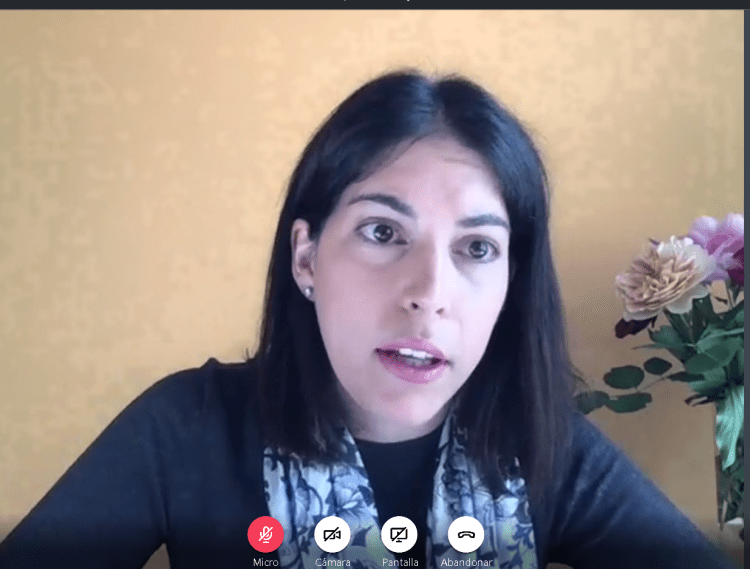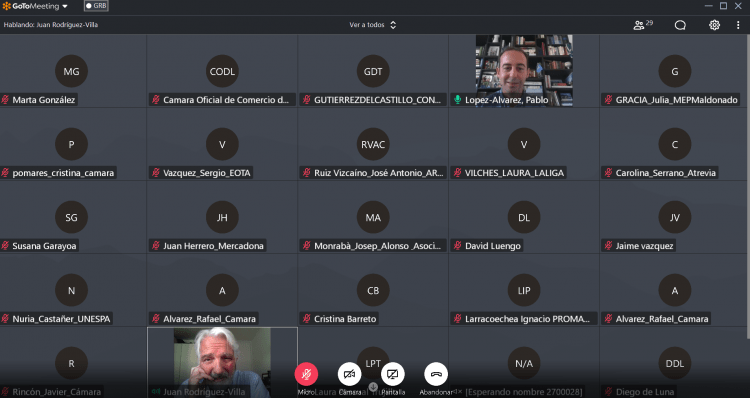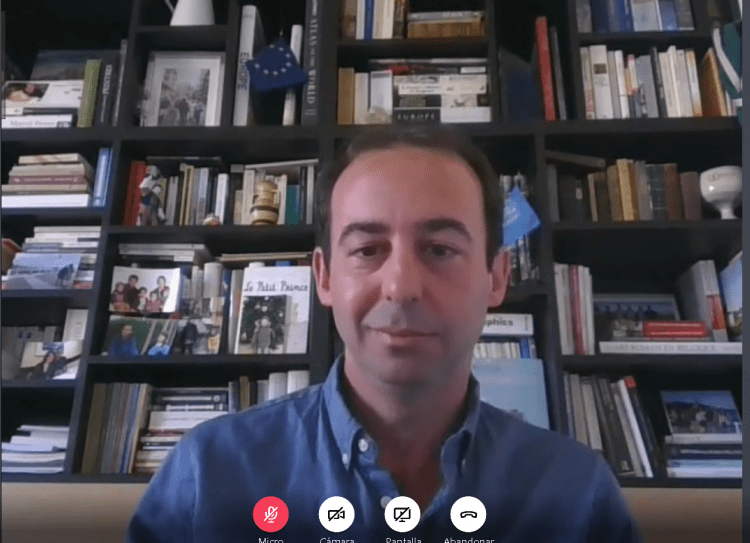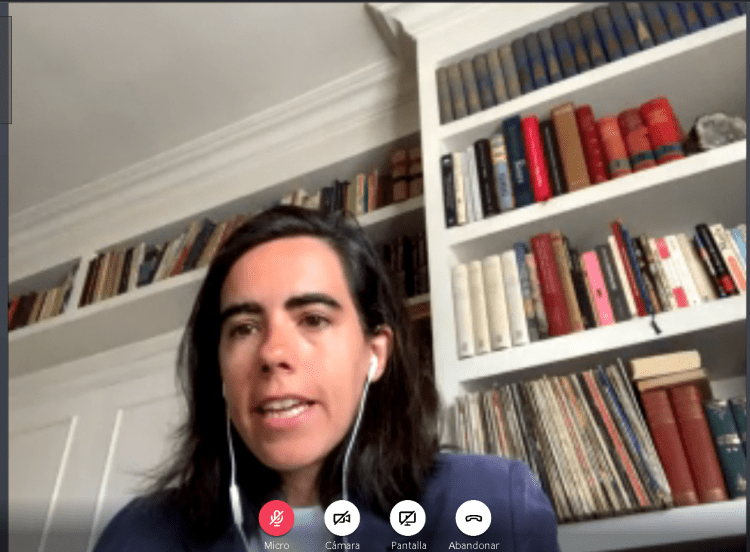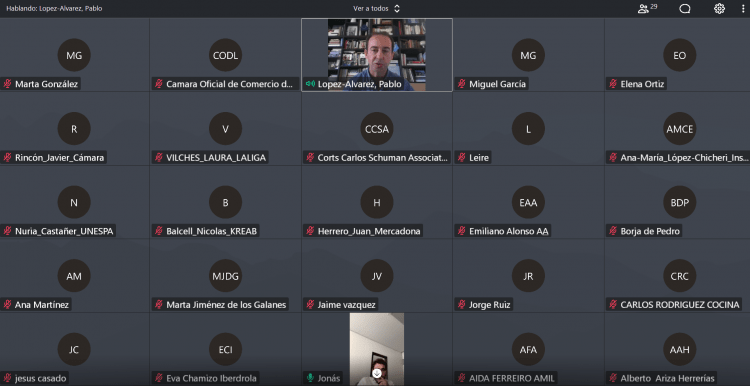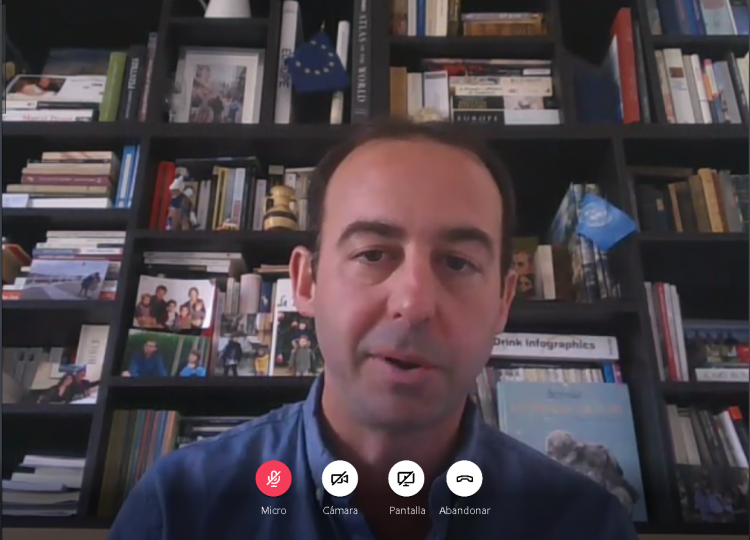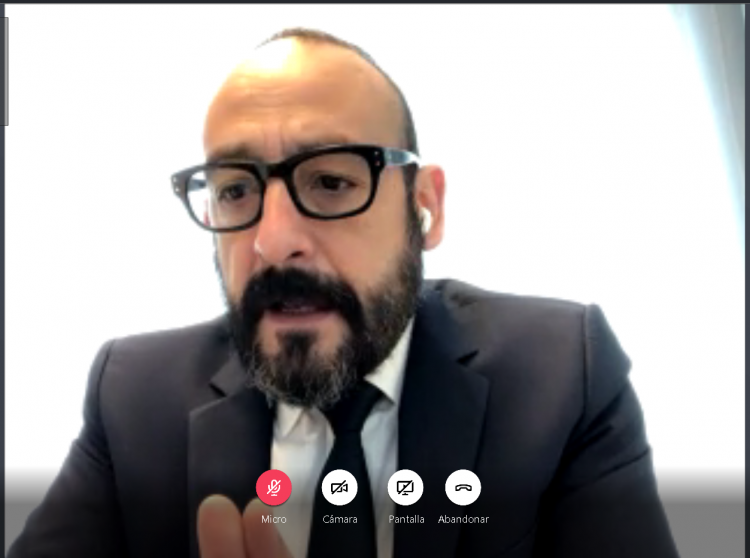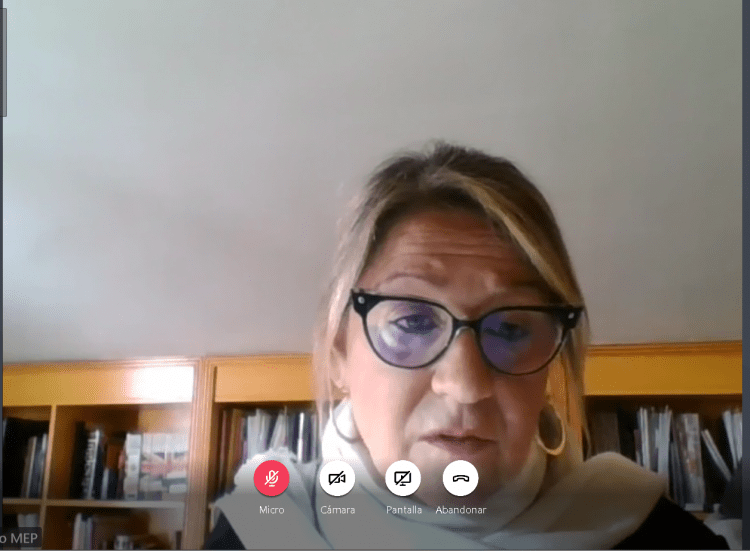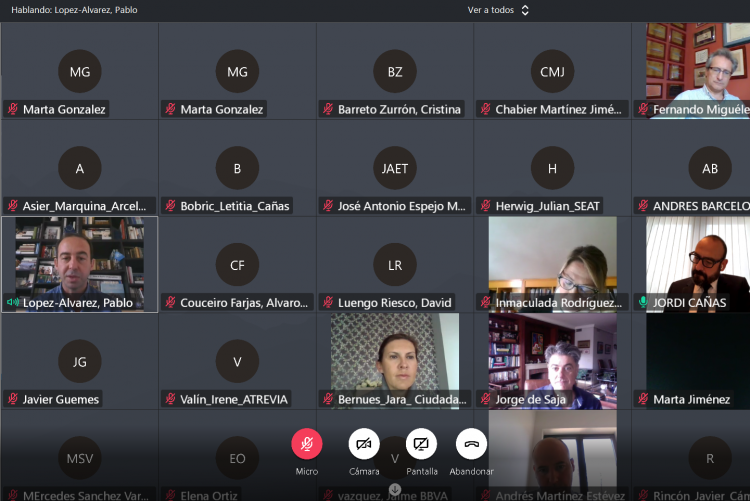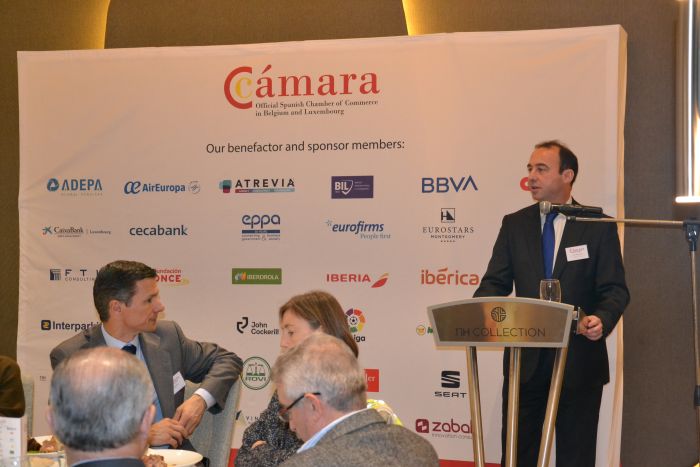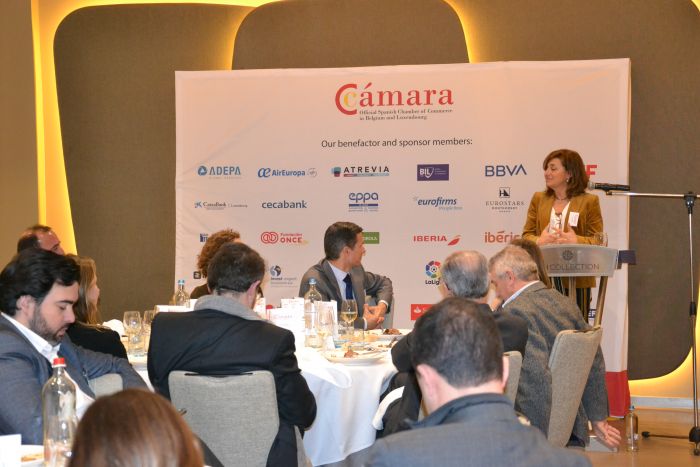Virtual Breakfast-Debate with María Teresa Fábregas, Director Recovery and Resilience Task Force at the European Commission
On Thursday 1st October, the Official Spanish Chamber of Commerce in Belgium and Luxembourg organised a new virtual breakfast debate in the framework of its “Business Circle” platform. The breakfast focused on “Recovery plans: sustainable growth” and María Teresa Fábregas, Director Recovery and Resilience Task Force at the European Commission was the guest speaker.
Pablo López Álvarez, Vicepresident of the Chamber, welcomed and thanked the speakers as well as all the attendees.
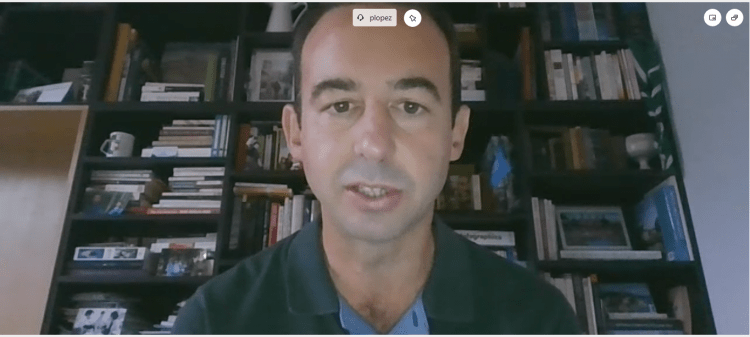 Afterwards, on behalf of the member company and sponsor of the event, Iberdrola, its Director of European Public Affairs, Eva Chamizo, took the floor and thanked the spekaer and the entire team of the European Commission’s Working Group for Recovery and Resilience, for their great work in contributing from the European institutions to economic recovery. Chamizo stressed the need to commit to a green and sustainable recovery linked to the objectives of the Green Deal and allows private investment in clean energy. She also highlighted Iberdrola’s long career in prioritising investment in green energy, which made Iberdrola stand out among the leading companies in the sector.
Afterwards, on behalf of the member company and sponsor of the event, Iberdrola, its Director of European Public Affairs, Eva Chamizo, took the floor and thanked the spekaer and the entire team of the European Commission’s Working Group for Recovery and Resilience, for their great work in contributing from the European institutions to economic recovery. Chamizo stressed the need to commit to a green and sustainable recovery linked to the objectives of the Green Deal and allows private investment in clean energy. She also highlighted Iberdrola’s long career in prioritising investment in green energy, which made Iberdrola stand out among the leading companies in the sector.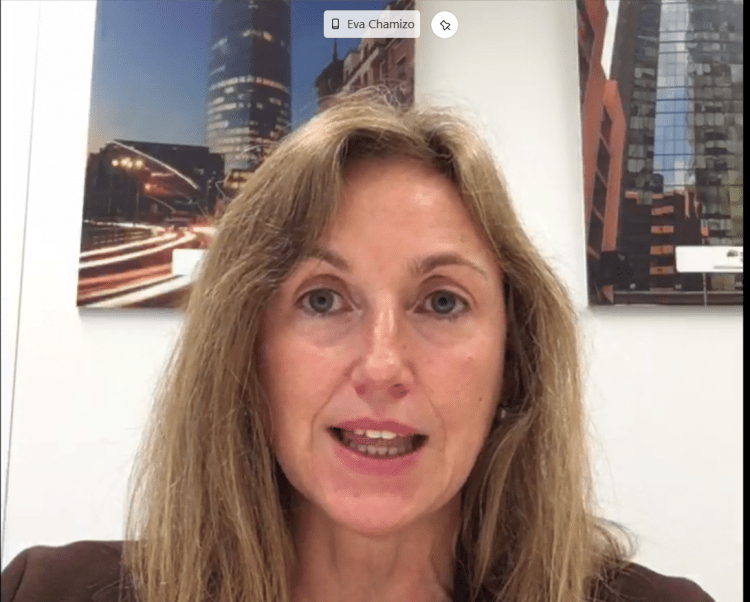
María Teresa Fábregas began by outlining the key points of the future Recovery and Resilience Mechanism, which forms part of the Recovery Plan for Europe proposed by the European Commission. The intention of this mechanism is to contribute to the repair of the economic and social damage caused by the coronavirus pandemic without forgetting the great strategic challenges facing Europe.
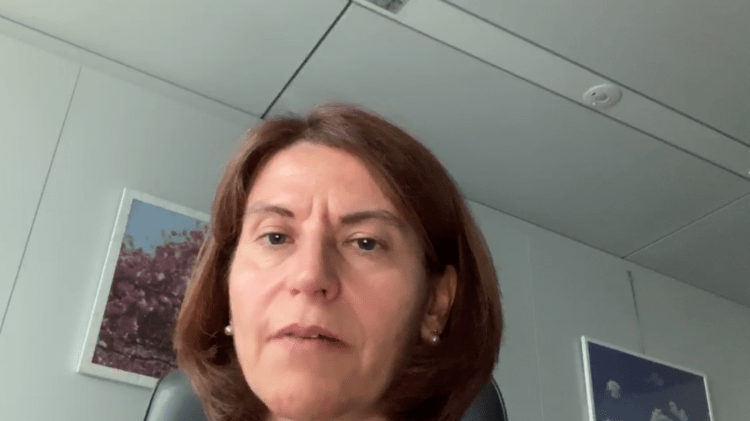 This plan is aimed first and firstly at the ecological transition of the European Union towards a climate-neutral Europe by 2050 in line with the Green Deal. The speaker also highlighted as the second key of the economic recovery, the digital transition to adapt our economies and societies to new technologies. Fábregas went on explaining that it will be up to the Member States to present their national recovery plans to the European Commission from 15 October, which will ensure that they are properly implemented through the auditing and control mechanisms that are being applied to all European funds. The Director of the Working Group for Recovery and Resilience explained that the management of the mechanism’s funds will have to be done in accordance with the constitutional order of each country and in accordance with the distribution of competences in the case of decentralised Member States. However, national governments will have a certain margin to determine how they will manage them, either through transfers to sub-national entities (federated states, autonomous communities, etc.) or through central agencies.
This plan is aimed first and firstly at the ecological transition of the European Union towards a climate-neutral Europe by 2050 in line with the Green Deal. The speaker also highlighted as the second key of the economic recovery, the digital transition to adapt our economies and societies to new technologies. Fábregas went on explaining that it will be up to the Member States to present their national recovery plans to the European Commission from 15 October, which will ensure that they are properly implemented through the auditing and control mechanisms that are being applied to all European funds. The Director of the Working Group for Recovery and Resilience explained that the management of the mechanism’s funds will have to be done in accordance with the constitutional order of each country and in accordance with the distribution of competences in the case of decentralised Member States. However, national governments will have a certain margin to determine how they will manage them, either through transfers to sub-national entities (federated states, autonomous communities, etc.) or through central agencies.
During the round of questions, the participants were able to express their doubts and comments on many areas of interest. Thus, topics such as eligibility criteria and the mechanism for allocating funds for recovery, the social economy or more specific measures for the cultural and audio-visual sector were discussed.
From the Official Spanish Chamber of Commerce in Belgium and Luxembourg we would like to thank María Teresa Fábregas, our member company Iberdrola for sponsoring this event and all attendees for joining this event.
Sponsored by:


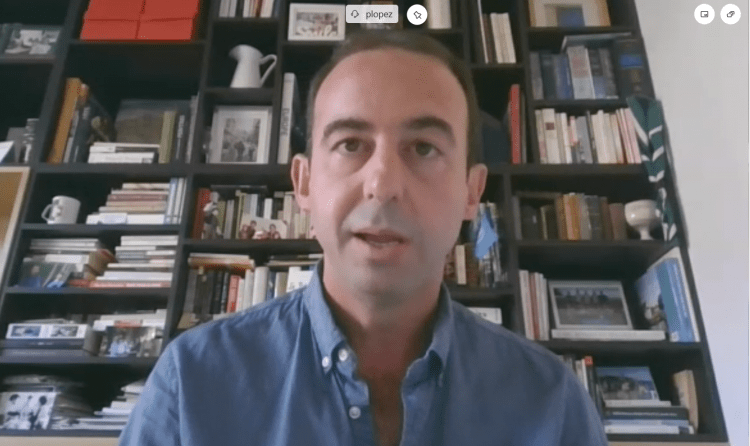
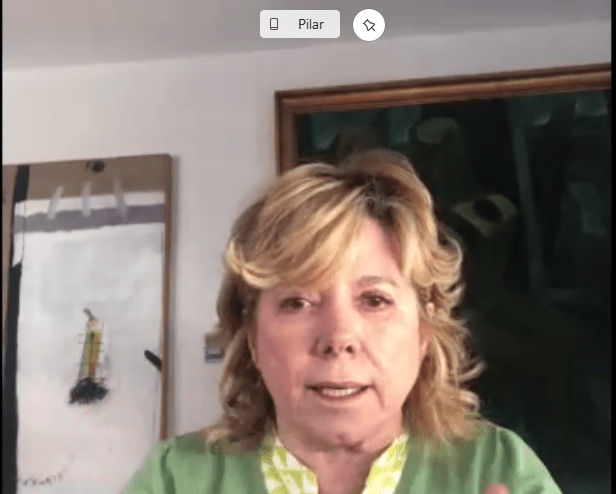 Del Castillo also emphasized the need for the legislative proposal made by the Commission to take into
Del Castillo also emphasized the need for the legislative proposal made by the Commission to take into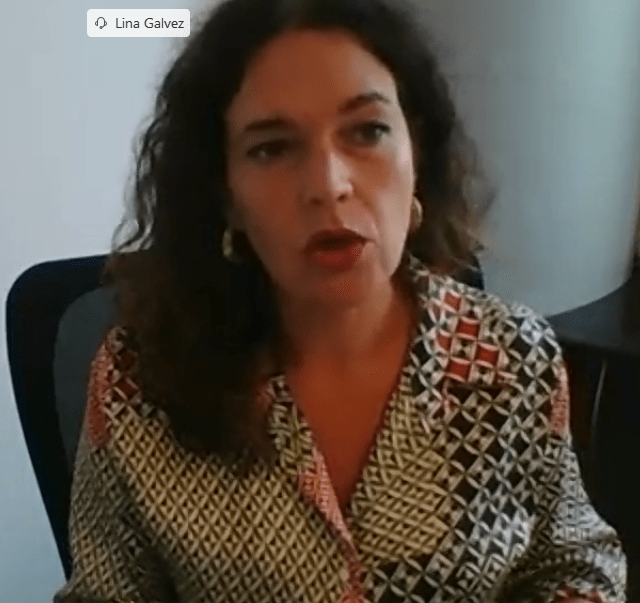 Lina Gálvez took the floor talking, firstly, about the modification of the priorities of the ITRE committee as a result of the crisis of the COVID as well as the energy and digital transition (twin transition), mentioning the decrease in commitment to research and renewal by the EU in the latest budget negotiations, which she considers a big mistake. The MEP also explained how in Europe there has never been a single industrial strategy, although it is clear that there should be as a result of this crisis. Gálvez also stressed the importance of green energy, with the horizon of climate neutrality for 2050 to which not all member countries are at the same point. He also referred to how climate and energy legislation have a central weight in the regulatory agenda of the coming years: hydrogen, electric batteries and the long-term commitment to green energy are some of the items on the agenda.
Lina Gálvez took the floor talking, firstly, about the modification of the priorities of the ITRE committee as a result of the crisis of the COVID as well as the energy and digital transition (twin transition), mentioning the decrease in commitment to research and renewal by the EU in the latest budget negotiations, which she considers a big mistake. The MEP also explained how in Europe there has never been a single industrial strategy, although it is clear that there should be as a result of this crisis. Gálvez also stressed the importance of green energy, with the horizon of climate neutrality for 2050 to which not all member countries are at the same point. He also referred to how climate and energy legislation have a central weight in the regulatory agenda of the coming years: hydrogen, electric batteries and the long-term commitment to green energy are some of the items on the agenda.